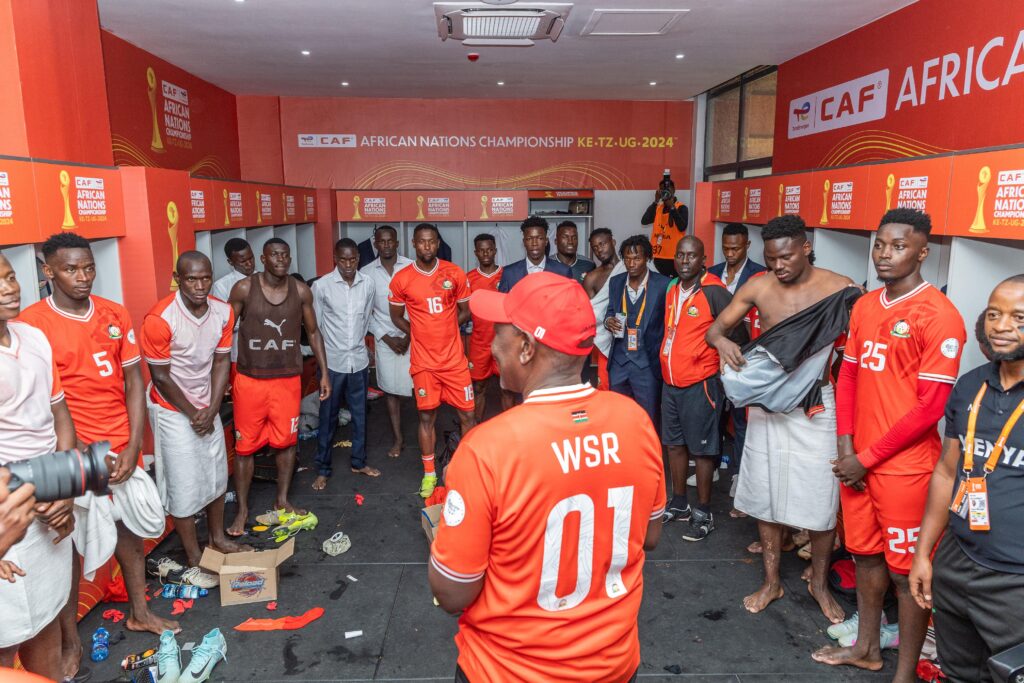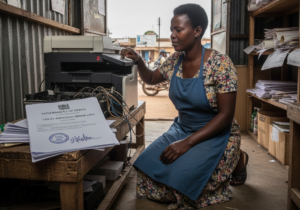A Kenyan proverb says that the stomach does not forget who fed it. This week, our Harambee Stars reminded us that when leadership invests in its people, they respond with energy beyond what anyone expected. From the dusty pitches where they first kicked a ball to the global spotlight of the African Nations Championship, they carried our hopes with pride and determination. And when President William Ruto promised them millions in prizes and even two-bedroom houses, they played like men whose hearts were pumping not only blood but also destiny. If death itself had visited the pitch, it would have had to sit on the bench until the final whistle.
The CHAN 2024 tournament has been a breakthrough. For the first time in 38 years, Kenya co-hosted a major continental championship with Uganda and Tanzania. It was a milestone in logistics, infrastructure, and, most importantly, in national morale. Some Kenyans joked that Harambee Stars had already succeeded just by topping a group that included Morocco and DR Congo. Indeed, this was the so-called “group of death.” Yet, against all odds, our team played with a unity that silenced critics and renewed hope in Kenyan football.
Inspiration carried them far, but at the semi-final stage, they faced the harsh truth that inspiration alone does not win championships. Technical mastery, infrastructure, and consistent investment distinguish us from the continent’s best. This isn’t failure, but a reflection held up to us. Public support and leadership rewards can ignite the fire, but long-term systems of training, coaching, and management sustain it.
I have served in sports administration long enough to see this cycle repeat. As Treasurer and later Vice Chairman of AFC Leopards, as Chairman of Cricket Kenya, as a member of the National Sports Council, as leader of the Kenya Women’s National Team tour to the US, and as CEO of the 2007 IAAF World Cross Country Championships in Mombasa, I learned that sports and life follow the same rules. If you cut corners, betray integrity, or fight among yourselves instead of working together, the results will reveal you. But if you promote discipline, unity, and investment, the outcome will surprise even the most ambitious dreamer.
The lesson of CHAN is therefore threefold. First, sports demand integrity beyond the field. Many of our past failures in football and cricket resulted not from lack of talent but from corruption and mismanagement. When Nicholas Musonye and his team led this tournament, they demonstrated what clean, decisive leadership can accomplish. Second, sports generate livelihoods and economic growth. Every match filled hotels, boda bodas, eateries, and digital platforms. An unforgettable statistic is that more than Sh145 million in ticket sales was collected before the final whistle, proving that sports are not just entertainment but a thriving economy. Third, sports teach resilience. Our boys lost in the semi-final, but they fell forward, carrying the pride of a nation that had supported them with unmatched passion.
President Ruto reminded us that Kenya now sets its sights on AFCON 2027. That vision demands more than prize money. It calls for investment in structured academies, transparent governance, corporate partnerships, and facilities that will last long after the cameras are gone. In my Green Book, I argue that sports, when managed with integrity, become both a unifier and a teacher. They remind us that greatness is never an accident. It is the result of sacrifice, resilience, and self-belief.
Just as Harambee Stars exceeded expectations and as the new African champions lifted the trophy last night in Kasarani, the lesson remains the same: when athletes feel their nation’s support, they rise beyond imagination. Similarly, every Kenyan can thrive if leadership in every sector listens, invests, and inspires. Let us reward integrity, build systems, and always remember that passion is powerful, but preparation is supreme. Think green, act green!



